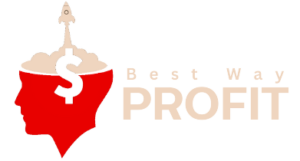You’ve probably considered how you spend your time, but have you honestly evaluated its financial worth? Understanding this can significantly influence your approach to productivity and economic stability. By calculating your hourly worth, you can prioritize tasks that align with your financial goals, leading to better returns on your time investment. It’s not only about working harder but working smarter. So, how do you begin to unlock your time’s full potential and make more informed decisions? Let’s explore the strategies that can transform how you view and utilize your most valuable resource.
Valuing Your Time
Understanding how to value your time is crucial for optimizing your personal and financial well-being. It would help if you analyzed your time allocation meticulously, as each hour significantly impacts your life.
Studies show that effective time management contributes to higher productivity and better decision-making. For instance, allocating more time to high-priority tasks can yield greater financial returns. Data indicates that people prioritizing their time wisely report higher satisfaction and economic stability.
Calculating Hourly Worth
To calculate your hourly worth, divide your annual salary by the total hours you work in a year. This simple formula provides a concrete figure to help you make informed decisions about your time management and financial implications.
Here’s how to break it down:
- Annual Salary: Your total earnings for the year.
- Total Hours Worked: Calculate by multiplying weekly hours by the number of workweeks.
- Hourly Worth: Annual salary divided by total hours worked.
- Time Management: Use this figure to prioritize high-value tasks.
Understanding your hourly worth helps you make better choices about allocating your time. It underscores the financial implications of every hour spent, guiding you to maximize productivity and economic gains.
Monetary Value of Time
Calculating your hourly worth provides a foundation for recognizing the monetary value of your time, helping you align your activities with financial and personal priorities.
Understanding opportunity cost can help you make informed decisions about effectively assigning your time. For instance, if your hourly worth is $50, spending an hour on a task that could be outsourced for $20 could be more efficient.
Effective time management lets you focus on high-value activities, maximizing productivity and financial returns. Analyzing data on how you spend your time helps identify areas for adjustment.
Prioritizing tasks that align with your financial goals ensures that you utilize your time in the most economically beneficial manner.
Balancing Priorities
Balancing priorities involves strategically aligning your time investments with your financial and personal goals to achieve optimal outcomes. To master this, analyze how each hour is spent and its impact on individual fulfillment and economic well-being.
Prioritizing tasks requires data-driven decision-making and careful consideration of short-term and long-term benefits.
Here are key strategies to help balance priorities:
- Evaluate Time Allocation: Assess how much time you dedicate to various activities.
- Set Clear Goals: Define your financial and personal objectives.
- Monitor Outcomes: Track progress towards your goals to measure success.
- Adjust as Needed: Be flexible and ready to reallocate time-based on changing circumstances.
Increasing Personal Value

By strategically investing in education and experience, you can significantly increase your value and enhance your professional prospects. Investigating data from the Bureau of Labor Statistics reveals that individuals with a bachelor’s degree earn around $32,000 more annually than those with only a high school certification. Effective investment strategies include pursuing advanced degrees, certifications, and specialized training, which can yield substantial long-term returns.
Additionally, seeking career development opportunities such as mentorship programs, networking events, and industry conferences can expand your professional network and skillset. Leveraging these strategies boosts your marketability and positions you for promotions and raises, maximizing the value of each hour you work.
Wealth Distribution Insights
Understanding the extreme concentration of wealth in the U.S. reveals that the top 1% controls a disproportionate share of the nation’s financial resources. This disparity underscores the importance of examining their financial habits to glean insights into wealth accumulation.
Analyzing how the wealthy manage their finances can offer valuable lessons.
Key insights include:
- Investment strategies: The top 1% often invest in diverse asset classes.
- Savings rates: They maintain higher savings rates compared to the average household.
- Debt management: Effective debt utilization and management are common among them.
- Financial education: Continuous learning about finance is a priority.
Managing Subscriptions
Examining the financial habits of the wealthy provides valuable lessons, but another critical area to address for effective financial management is how you manage subscriptions. Subscription management is essential for economic efficiency.
Regularly reviewing your subscriptions and canceling unused ones can lead to significant cost savings. Implement subscription optimization techniques by utilizing cost-saving strategies such as bundling services or opting for annual plans, which often come at a discounted rate.
Data from the BLS (Bureau of Labor Statistics) shows average household spending on subscriptions is rising. By taking proactive steps, you can ensure you’re not overspending.
Consider using digital tools and apps for streamlined subscription management. This will enhance your overall financial efficiency and free up funds for other priorities.
Sharing Informative Content
Sharing informative content effectively can amplify your reach and deliver valuable insights to a broader audience. Leveraging multi-channel sharing is crucial for maximizing impact. To optimize your strategy, focus on content engagement and actively seek feedback.
Here are some data-driven tips:
- Utilize social media analytics: Track which platforms yield the highest engagement rates.
- Segment your audience: Tailor content to different demographics for better resonance.
- Incorporate interactive elements: Polls and Q&A sessions can boost content engagement.
- Encourage feedback: Use surveys and comment sections to gather insights and refine your approach.
Conclusion
Imagine you’re a gardener. By knowing the specific value of each plant, you can prioritize which ones to nurture for the best harvest.
Similarly, understanding your hourly worth helps you focus on high-value tasks that align with your financial goals. For instance, if an hour of your time is worth $50, spending it on activities yielding less is like watering weeds.
By optimizing your time, you’re not just busy—you’re productive and financially secure.



